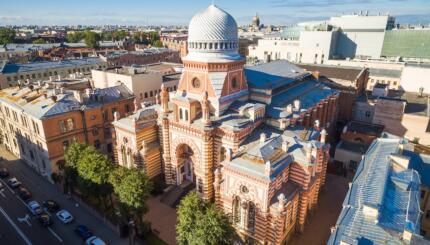For me, this week has yielded some very productive thinking about Israel and Zionism. In addition to the blogging and blog-reading about the AJC article, I’ve been reading Mordecai Richler’s amazing memoir This Year in Jerusalem, which includes many reflections on the writer’s early years in the Zionist youth movement Habonim.
Then, yesterday, I was in a wonderful class given by Rabbi David Gedzelman on the Zionism of A.D. Gordon and Mordecai Kaplan. One quote from Kaplan is worth sharing in full, especially at the end of a week in which our thoughts about Zionism and Israel have been muddled in contentiousness and controversy.
But the quote is also important because it speaks to the ubiquitous Jewish continuity debate, as well (this week manifested in the reports about Steven M. Cohen’s new study on intermarriage/in-marriage).
From Kaplan’s A New Zionism (1955):
Zionism, as a movement to redeem the Jewish People and regenerate its spirit through the reconstitution of Jewish Peoplehood and the reclamation of Eretz Yisrael, has to meet the following requirements: (a) it has to foster among the Jews both of Israel and of the Diaspora a sense of interdependence and a process of interaction; and, (b) it has to give the individual Jew the feeling that participating in that interdependence and interaction makes him more of a person. Thus is Zionism to make the Jewish People a means of salvation to the individual Jew. To become that kind of a People is what the Jewish people has to live for. Otherwise its collective survival would become an end in itself. No society which makes survival and end in itself is capable of surviving severe crises…
After the class, I — half-jokingly, but definitely half-seriously — suggested to David that we recite this last sentence at every Jewish organizational meeting that relates to the question of Jewish continuity. (BTW: The bolds in the Kaplan quote are mine.)


